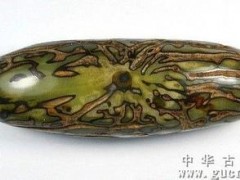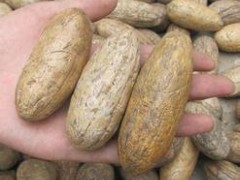千眼菩提批发价格 千眼菩提批发厂家
24小时电话热线:18630275771
在线客服qq:1538660283
千眼菩提子,因表面有很多天然斑点,仿佛有多的眼睛而得名。其树主要分布在热带及亚热带地区,数
量非常稀少。岳阳一手货源批发千眼菩提千眼菩提子四十年开花结果,结果之后其树很容易枯萎,其籽非常难打磨,非常易碎,所以成
品及其罕见。岳阳一手货源批发千眼菩提经过漫长的等待和用心制作才终成经典,可谓是菩提子**,菩提子之中的**“沉香”有非常
高的收藏价值。

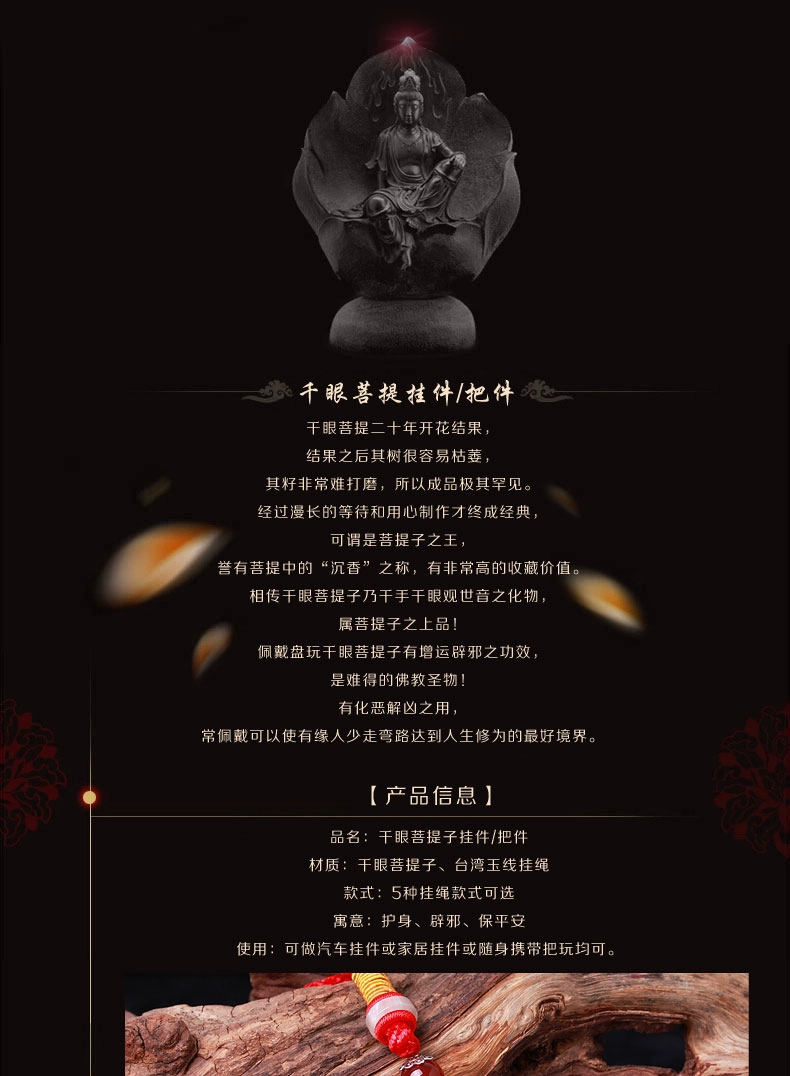
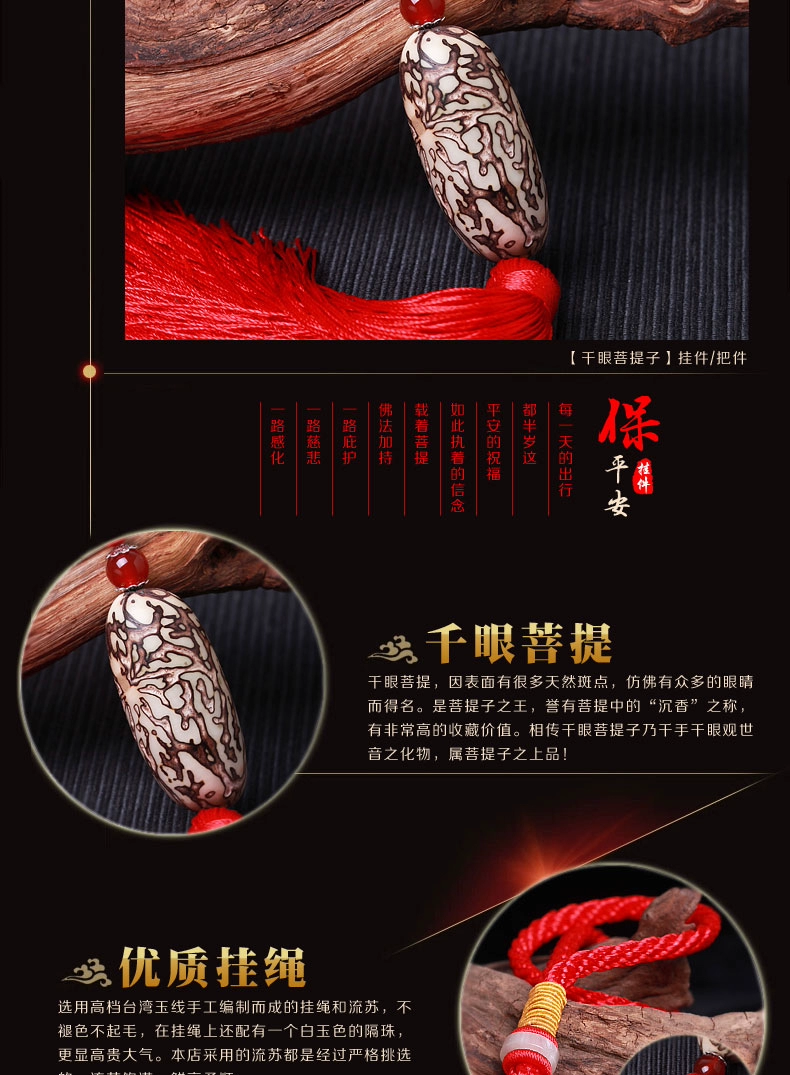
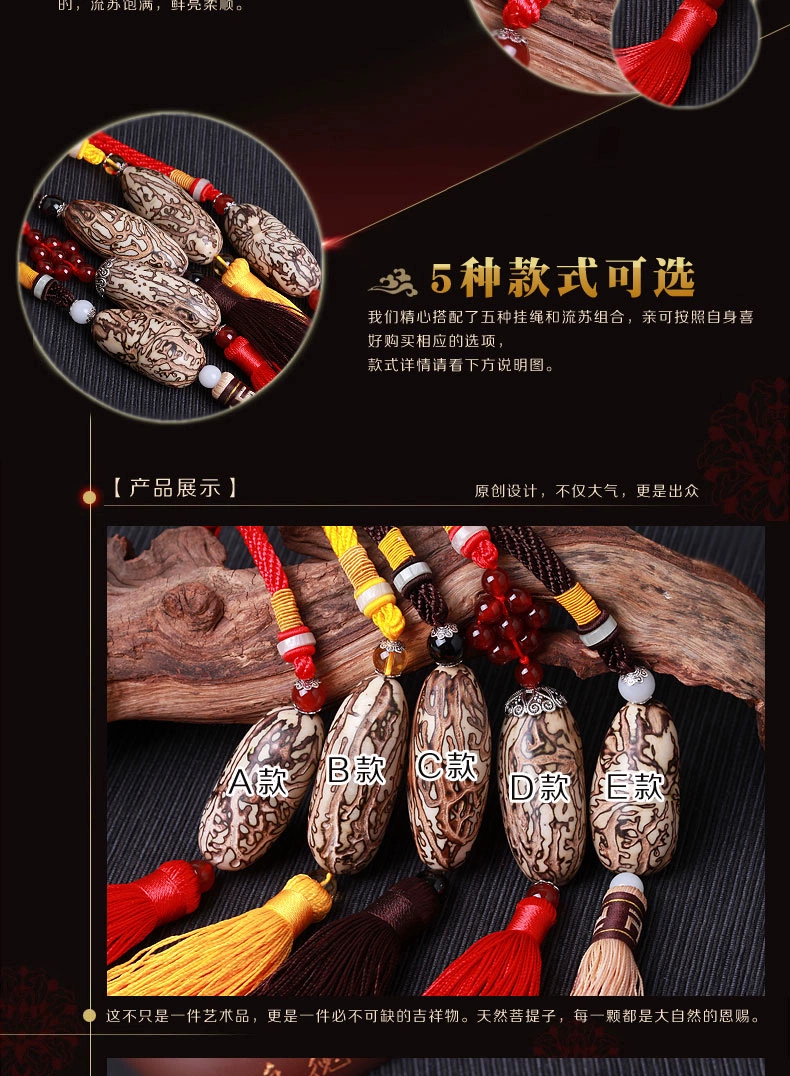
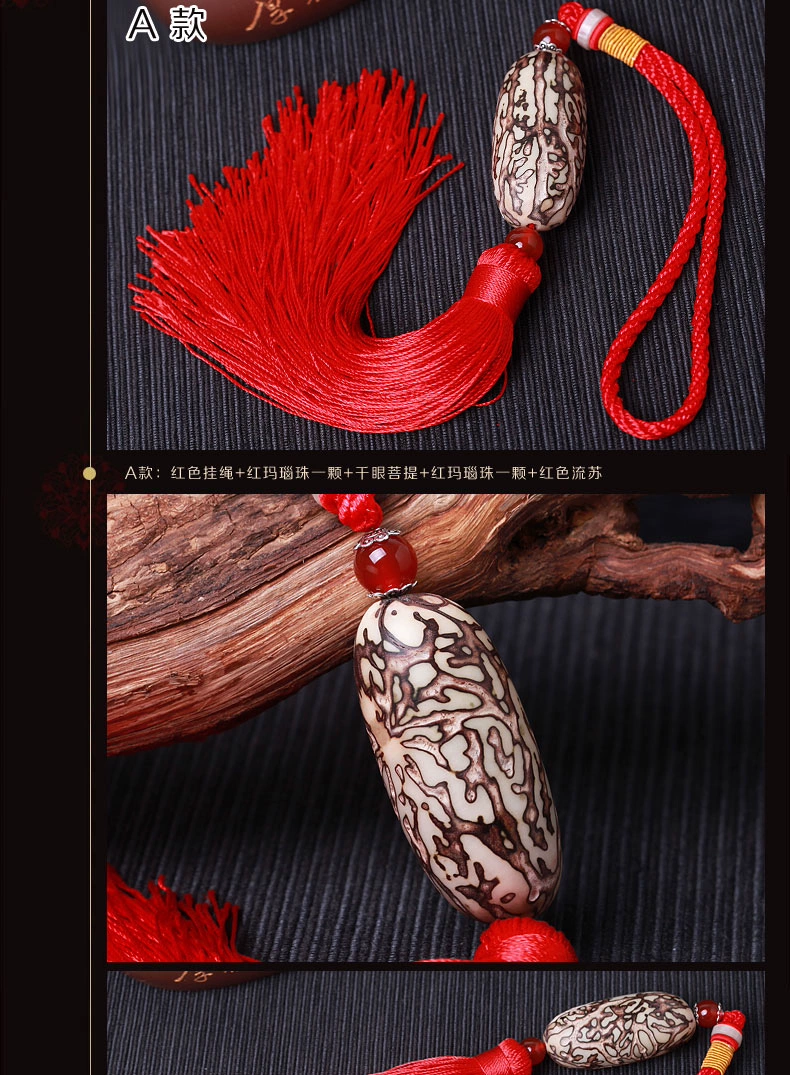
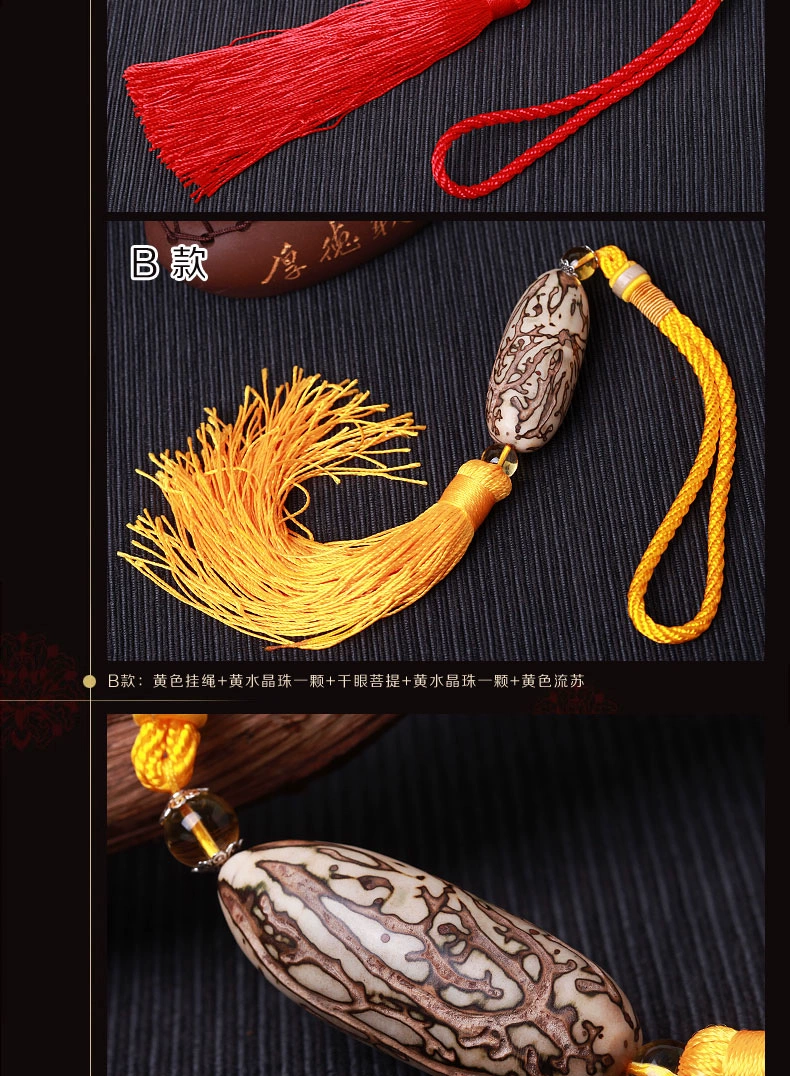
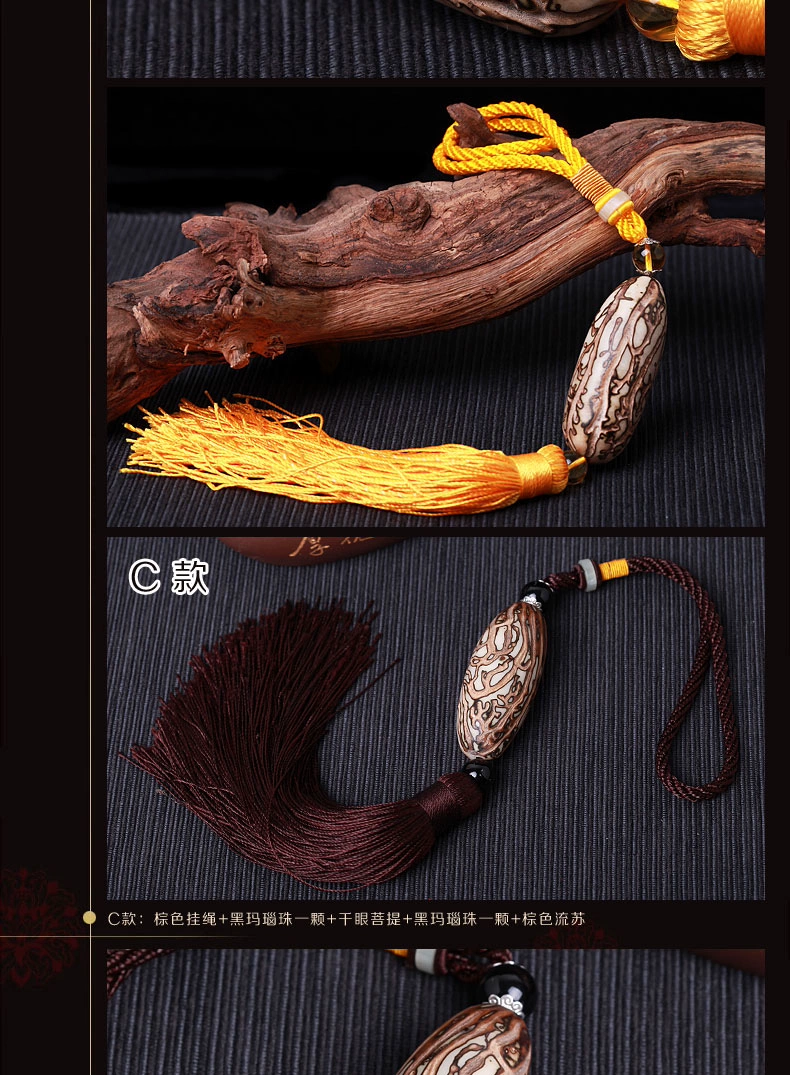
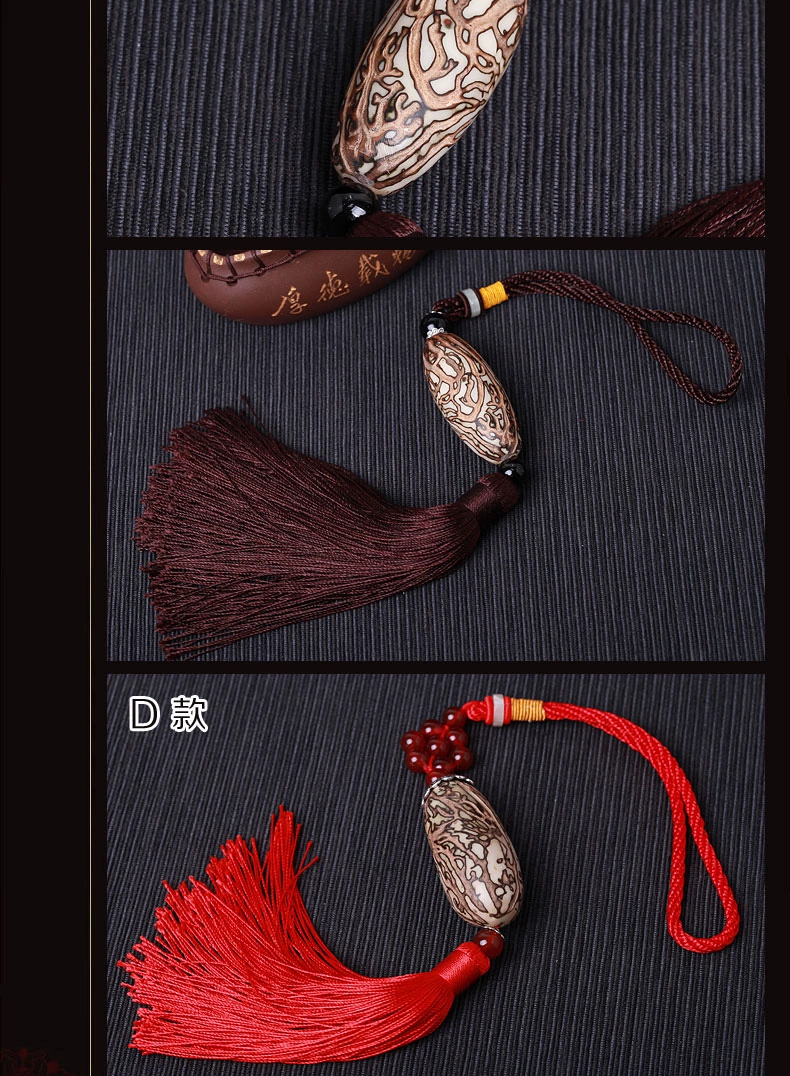
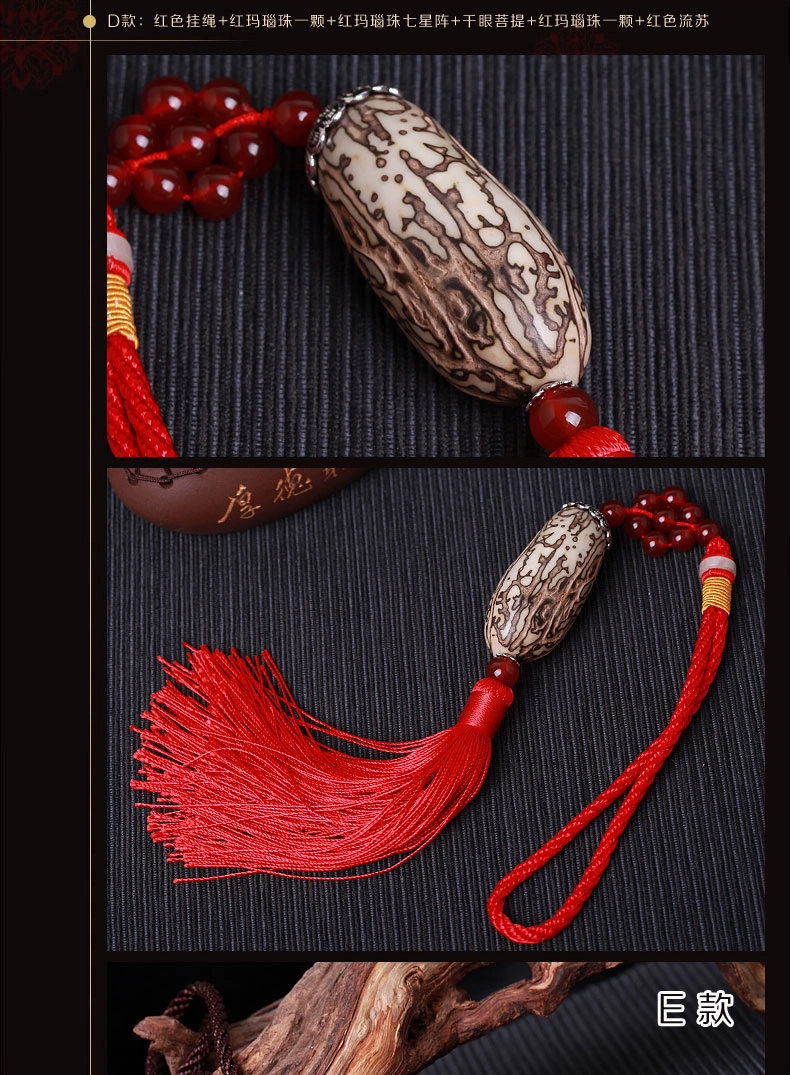
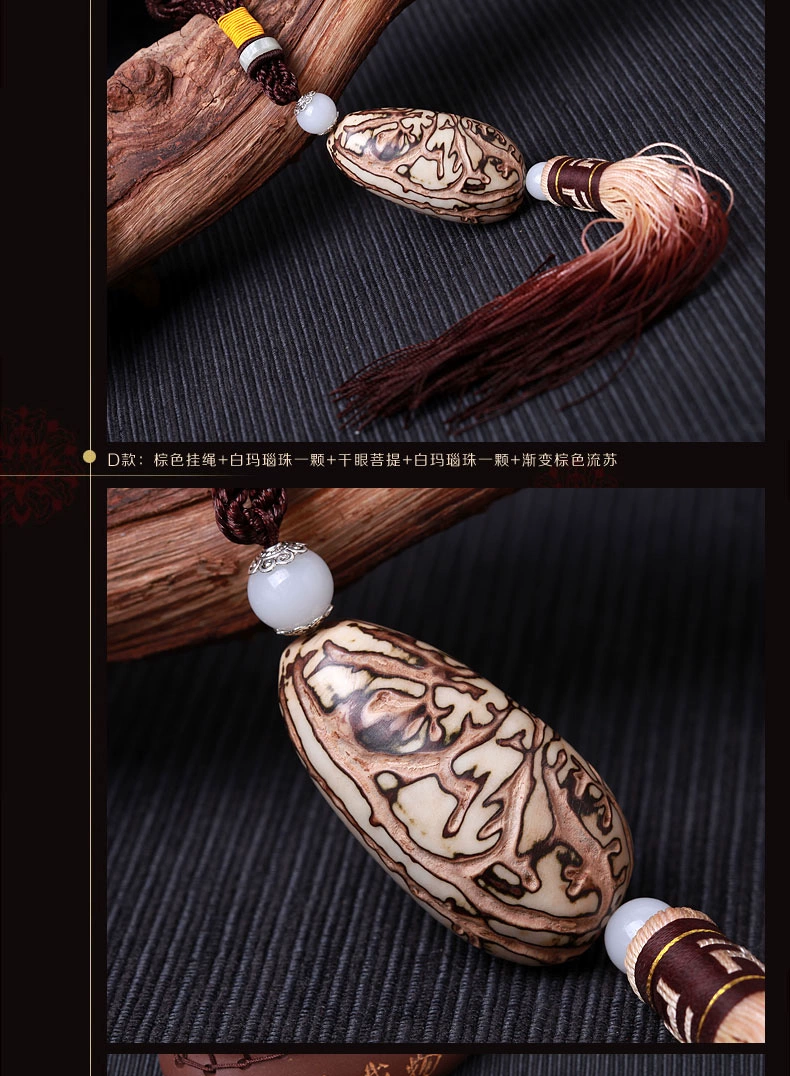
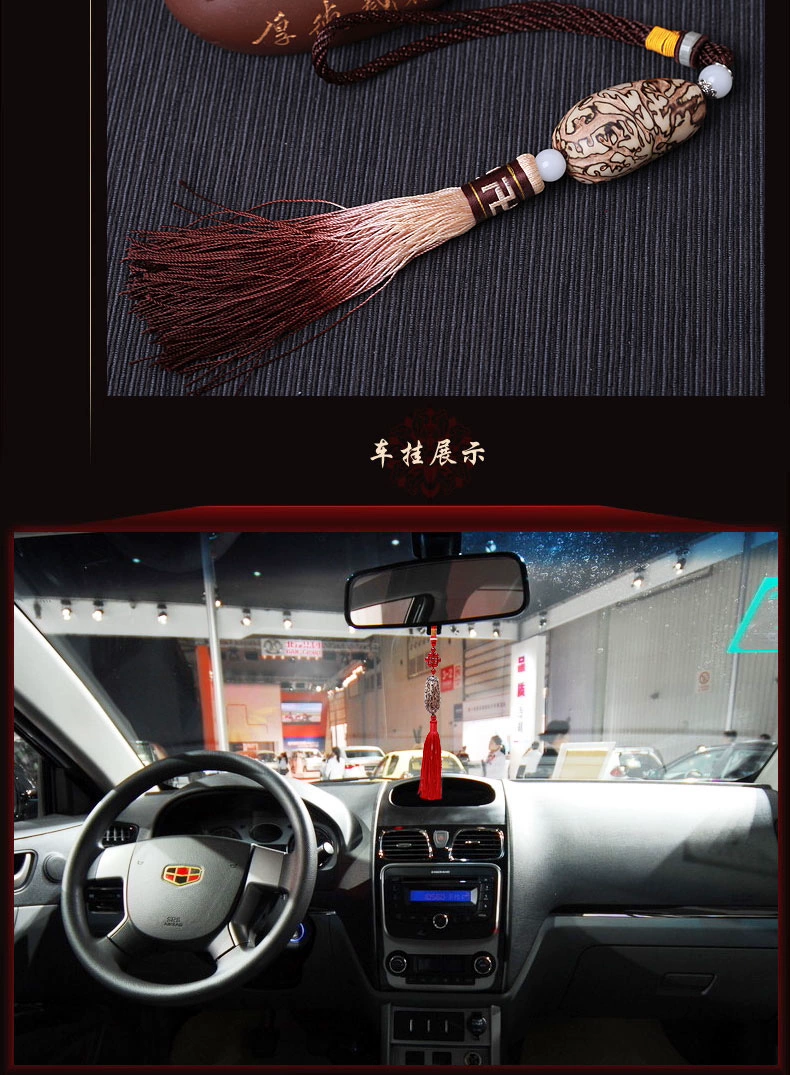
岳阳一手货源批发千眼菩提千眼菩提坚硬无比,为实心状,岳阳一手货源批发千眼菩提密度硬度大, 同时可以雕刻成任意喜欢的把件,也可以断开打 磨做成手串、手链。千眼菩提二十年
开花结果,结果之后其树很容易枯萎,岳阳一手货源批发千眼菩提其籽非常难打磨, 所以成品及其罕见。经过漫长的等待和用心制作才终成经典,可谓是菩提子之
王,誉有菩提中 的“沉香”之称,有非常高的收藏价值。相传千眼菩提子乃千手千眼观世音之化物,属菩提子之 上品!佩戴盘玩千眼菩提
子有增运辟邪之功效,是难得的佛教圣物!有化恶解凶之用,常佩戴 可以使有缘人少走弯路达到人生修为的**境界。
千眼菩提批发----千眼菩提形态特征
菩提树原产于印度,岳阳一手货源批发千眼菩提所以又得名为“印度菩提树”,后人又尊称为觉悟树、智慧树。早在公元502 年,也就是南北朝武帝天监年间,
菩提树被印度僧侣从天竺引入我国,种植于广州光孝寺坛前, 这处遗址依然存在供后人凭吊。从此之后,我国的西南部地区以及中南半
岛均有菩提树生长,像 广东、云南等地都是菩提树的第二故乡。菩提树不仅历史悠远,而且用途广泛、实际作用巨大[1]
由于菩提树的树冠巨大,亭亭如盖、浓荫覆地,观赏效果和绿化效果都很突出,所以在以用做治疗牙病的漱口水,菩提树的花叶可以做
镇痛剂,秋天采摘后可
直接入药,造福了一方百姓。 城市的 园林建设中常用做行道树。岳阳一手货源批发千眼菩提菩提树还具有很突出的医药用树汁可以用做治疗牙病的漱口水,菩提树
的花叶可以做镇痛剂,秋天采摘后可直接入药,岳阳一手货源批发千眼菩提造福了一方百姓。
千眼菩提批发----千眼菩提生长习性
千眼菩提子作为一种大自然的产物,有其天然的属性,在我们的日常持用与盘带中应该注意保养。如果能做到精心保养,经过长时
间的持用,千眼菩提子的颜色会由浅变深,或成棕色,褐色,赤色不等,表面也会越来越有光泽,令持用者爱不释手,随着时间的久
远,千眼菩提子的价值也会随之提升。
1、自然放一个星期。让千眼菩提子自然干燥,同时表面均匀的和空气接触形成细密均匀的氧化保护层开始手盘的时候手一定是要刚
洗过并且已经干透的,汗手不要直接盘,同时需要注意孔口周围一定要盘到,一天可以盘30分钟左右。一个星期到两个星期之后,你便
可以感觉有呱嗒 呱嗒的粘阻感,这是因为已经形成了一层薄薄的包浆。这时就可以放臵一段时间,进行自然干 燥,让包浆进行一定程度
的硬化。一般是一个星期左右,3个月的时间,你便会看到很有灵气 的光泽。
2、千眼菩提子在盘带过程中尽量不要沾水,如果不小心沾到水,应该马上用软布擦干,存放于阴凉避风处阴干,处理不当会造成千
岳阳一手货源批发千眼菩提
眼菩提子的开裂。
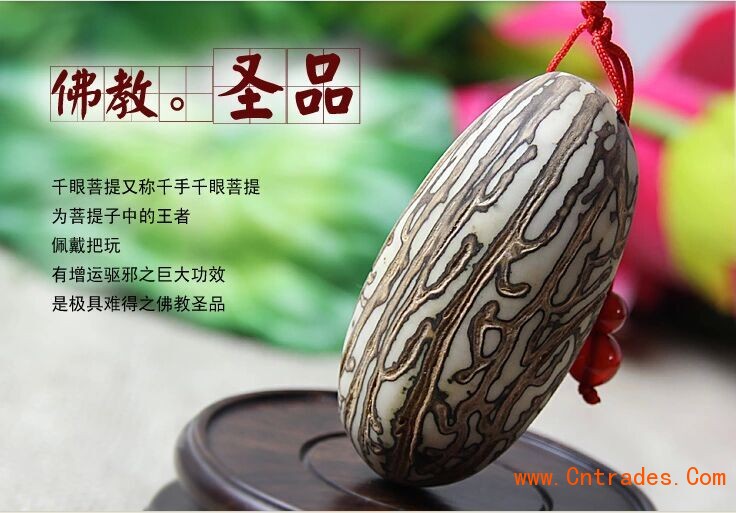

千眼菩提批发
千眼菩提批发价格 千眼菩提批发厂家
24小时电话热线:18630275771
在线客服qq:1538660283
Mrs Ray had become a widow before she was thirty; and she had grieved for her husband with truest sorrow, pouring herself out at first in tears, and afterwards expending herself in long hours of vain regrets. But she had never been rough or hard in her widowhood. It had ever been her nature to be soft. She was a woman all over, and had about her so much of a woman’s prettiness, that she had not altogether divested herself of it, even when her weepers had been of the broadest. To obtain favour in men’s eyes had never been in her mind since she had first obtained favour in the eyes of him who had been her lord; but yet she had never absolutely divested herself of her womanly charms, of that look, half retreating, half beseeching, which had won the heart of the ecclesiastical lawyer. Gradually her weeds and her deep heavy crapes had fallen away from her, and then, without much thought on the matter, she dressed herself much as did other women of forty or forty-five — being driven, however, on certain occasions by her daughter to a degree of dinginess, not by any means rivalling that of the daughter herself, but which she would not have achieved had she been left to her own devices. She was a sweet-tempered, good-humoured, loving, timid woman, ever listening and believing and learning, with a certain aptitude for gentle mirth at her heart which, however, was always being repressed and controlled by the circumstances of her life. She could gossip over a cup of tea, and enjoy buttered toast and hot cake very thoroughly, if only there was no one near her to whisper into her ear that any such enjoyment was wicked. In spite of the sorrows she had suffered she would have taught herself to believe this world to be a pleasant place, were it not so often preached into her ears that it is a vale of tribulation in which no satisfaction can abide. And it may be said of Mrs Ray that her religion, though it sufficed her, tormented her grievously. It sufficed her; and if on such a subject I may venture to give an opinion, I think it was of a nature to suffice her in that great strait for which it had been prepared. But in this world it tormented her, carrying her hither and thither, and leaving her in grievous doubt, not as to its own truth in any of its details, but as to her own conduct under its injunctions, and also as to her own mode of believing it. In truth she believed too much. She could never divide the minister from the Bible — nay, the very clerk in the church was sacred to her while exercising his functions therein. It never occurred to her to question any word that was said to her. If a linen-draper were to tell her that one coloured calico was better for her than another, she would take that point as settled by the man’s word, and for the time would be free from all doubt on that heading. So also when the clergyman in his sermon told her that she should live simply and altogether for heaven, that all thoughts as to this world were wicked thoughts, and that nothing belonging to this world could be other than painful, full of sorrow and vexations, she would go home believing him absolutely, and with tear-laden eyes would bethink herself how utterly she was a castaway, because of that tea, and cake, and innocent tittle-tattle with which the hours of her Saturday evening had been beguiled. She would weakly resolve that she would laugh no more, and that she would live in truth in a valley of tears. But then as the bright sun came upon her, and the birds sang around her, and someone that she loved would cling to her and kiss her, she would be happy in her own despite, and would laugh with a low musical sweet tone, forgetting that such laughter was a sin.Such a woman was our Mrs Ray. As her name imports, she had been married in the way most popular among ladies, with bell, book, and parson. She had been like a young peach tree that, in its early days, is carefully taught to grow against a propitious southern wall. Her natural prop had been found for her, and all had been well. But her heaven had been made black with storms; the heavy winds had come, and the warm sheltering covert against which she had felt herself so safe had been torn away from her branches as they were spreading themselves forth to the fullness of life. She had been married at eighteen, and then, after ten years of wedded security, she had become a widow.Her husband had been some years older than herself — a steady, sober, hard-working, earnest man, well fitted to act as a protecting screen to such a woman as he had chosen. They had lived in Exeter, both of them having belonged to Devonshire from their birth; and Mr Ray, though not a clergyman himself, had been employed in matters ecclesiastical. He was a lawyer — but a lawyer of that sort that is so nearly akin to the sacerdotal profession, as to make him quite clerical and almost a clergyman. He managed the property of the dean and chapter, and knew what were the rights, and also what were the wrongs, of prebendaries and minor canons — of vicars choral, and even of choristers. But he had been dead many years before our story commences, and so much as this is now said of him simply to explain under what circumstances Mrs Ray had received the first tinge of that colouring which was given to her life by church matters.As regards Mrs Ray herself, I think it was well that poor Mr Prime had died. It assured to her the support which she needed. It must, however, be acknowledged that Mrs Prime was a harder taskmaster than Dorothea Ray had been, and that the mother might have undergone a gentler ruling had the daughter never become a wife. I think there was much in the hardness of the weeds she wore. It seemed as though Mrs Prime in selecting her crape, her bombazine, and the models of her caps, had resolved to repress all ideas of feminine softness — as though she had sworn to herself, with a great oath, that man should never again look on her with gratified eyes. The materials she wore have made other widows very pleasant to be seen — with a sad thoughtful pleasantness indeed, but still very pleasant. There was nothing of that with Mrs Prime. When she came back to her mother’s cottage near Baslehurst she was not yet twenty years old, but she was rough with weeds. Her caps were lumpy, heavy, full of woe, and clean only as decency might require — not nicely clean with feminine care. The very stuff of which they were made was brown, rather than white, and her dress was always the same. It was rough, and black, and clinging — disagreeable to the eye in its shape, as will always be the dress of any woman which is worn day after day through all hours. By nature and education Mrs Prime was a prim, tidy woman, but it seemed that her peculiar ideas of duty required her to militate against her nature and education, at any rate in appearance. And this was her lot in life before she had yet reached her twentieth year!
